Through all the conversations I have with people about change, one issue that comes up again and again is the feeling of being alone in our work to advocate for change. Many of the comments on previous posts here in this publication suggest that many people feel isolated, alone, disconnected from others, and even singled out as they push for necessary change and institutional transformation.
Last year, during a workshop and presentation I led for about 300 people, I asked (through a poll) if people ever felt alone in their role as a changemaker, and 90% said “yes.” Even this week, I asked the same question to a smaller group of museum/nonprofit professionals, and nearly two-thirds said that they have felt alone when advocating for change in their organization. A vast majority of us feel a bit untethered when doing the important work of making change happen. We frequently feel like we just don’t have the colleagues and leaders who share our purpose and values as we struggle to make positive changes in our organizations and workplaces.
Some New Ways to Define Loneliness
In a 2021 essay in Harvard Magazine entitled “The Loneliness Pandemic,” author Jacob Sweet shares that social psychologists commonly define loneliness as “the gap between the social connections you would like to have and those you feel you experience”—a definition that made me pause and think about all the times I have felt lonely, wishing that there were more people around me supporting the same changes I wanted to see happen. The essay also highlights some of the research on loneliness and health, including one study which shows that being lonely has the same health risks as smoking 15 cigarettes a day (yikes!).
Our feelings of loneliness and isolation have certainly been accentuated through the pandemic as we live through lockdowns and quarantines, and as our work moved online to platforms like Zoom. We’ve all experienced so much distancing, and it’s certainly going to take some time to feel connected (truly connected) again.
In his recent book Together: The Healing Power of Human Connection in a Sometimes Lonely World, U.S. Surgeon General Vivek Murthy defines several forms of loneliness, including collective loneliness, or “the hunger for a network or community of people who share our sense of purpose.” Throughout the pandemic, so many of us have been reflecting on our values, what matters most to us, and what type of work aligns most closely with our personal values—and so many people (in nonprofits, museums, and many sectors) have changed the type of work we do to connect with others around a shared purpose.
Building Our Relationships with Others
As we dive deeper into our relationship with change, I think we should also be reflecting on our relationships with others.
How can we work to build connections with others as we advocate for meaningful change within our organizations? How can we lean in to forming communities of changemakers? For me, this is so much of what this Agents of Change publication is about—bringing people together, learning from each other, and equipping ourselves with the tools we need to fight for positive change. I’m leading several workshops later this week called “POWER UP for Change,” and they are not only designed to offer strategies to better advocate for change, but they are also about bringing together small groups of changemakers to be champions for each other.
None of us are alone in this work!
We know that others are doing this work, and we’ve got to be intentional about reaching out, finding them, and recognizing our collective work together.
Let’s Share with Each Other
As part of this process of building our relationships with others, I invite you to share your responses to the following questions with the Agents of Change community:
How can each of us work to build connection and community as we work toward making change happen?
What is one small, practical step you might take right now to begin a more intentional process of building relationships with others as you advocate for change?
What is one way you might already be powerfully connecting with others and advancing collective action around change?
Leave a comment here, responding with as few or as many thoughts, questions, and ideas as you’d like to share. Yes, short responses are very welcome – and so are long ones. And I’ll share my gratitude in advance for your honesty and vulnerability (both superpowers we need more of in this world).
Please consider reading each other’s comments and have an exchange via this platform. After all, I don’t see “Agents of Change” as just another passive monologue, but rather a more dynamic dialogue where we can be in conversation and connection with each other. That’s how we learn together and strengthen our collective practice.
One final thought from Murthy’s book Together. In it, he writes:
“being connected to others gives us a stake in more than our own interests. It expands those interests to include our whole community and thus increases our motivation to work together.”
We can all be agents of change, even in these lonely and challenging moments, and we can do this work together!

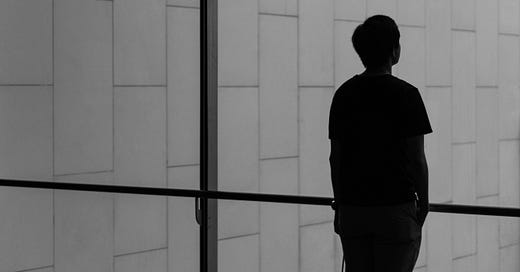





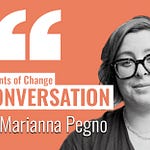
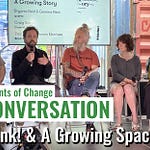
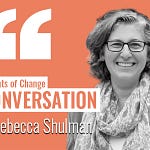
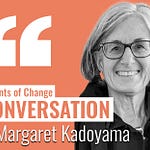
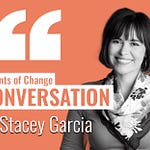
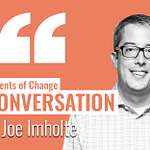
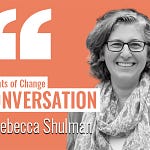
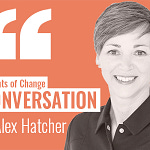
Share this post